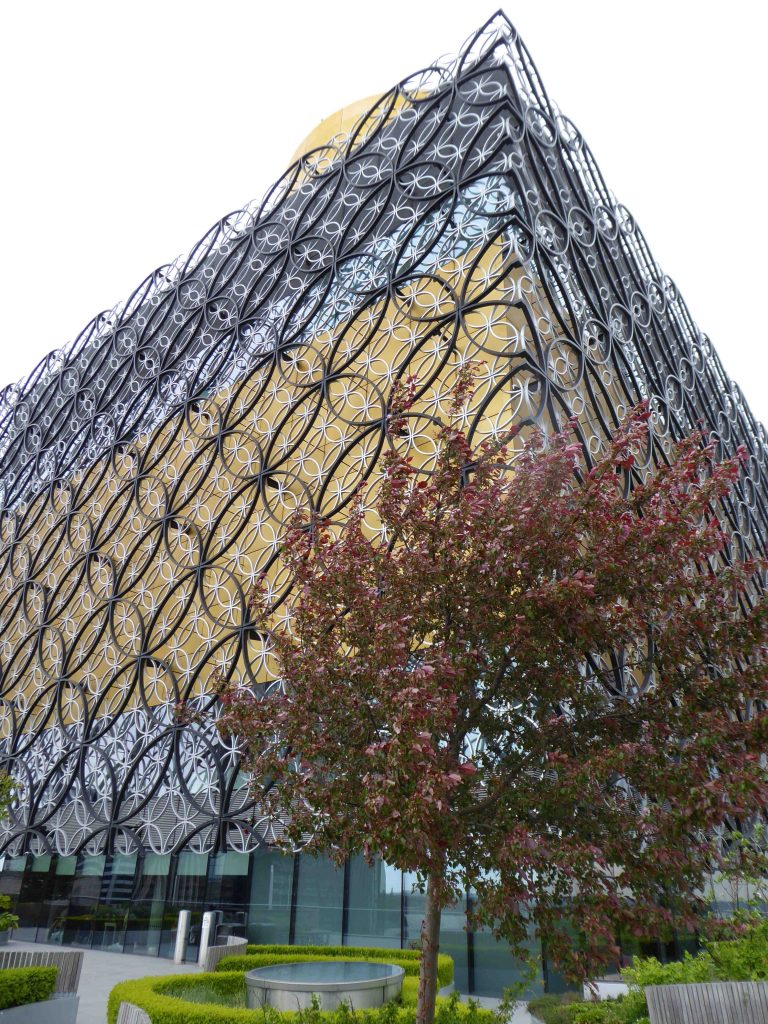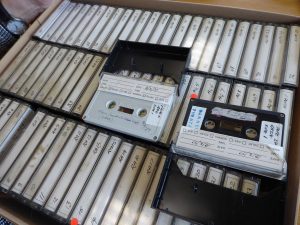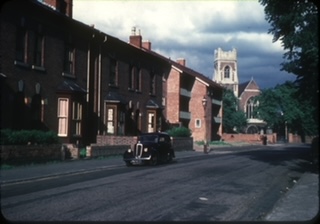As Birmingham is the largest city in the Midlands, and the second largest in Britain, it was inevitable that the UOSH project would work with collections covering this area. The Midlands team were lucky to collaborate with the Library of Birmingham on preserving three of their key collections.

All three of the collections the Midlands team worked with focus on working-class life, reflecting Birmingham’s long industrial history. Each of the collections uses a different format to explore the topic, providing unique reflections on the working-class experience of Birmingham residents.

Banner Theatre Company
The Banner Theatre Company collection consists of audio tapes recorded by Banner Theatre in the 1970s and 1980s. Formed in Birmingham in 1973 as a radical social theatre company, Banner Theatre specialised in incorporating recorded interview material, known as ‘actuality’, into its performances. Each of the productions staged by the company developed from discussions with the local community, resulting in the company gathering a vast body of material that details everyday working-class life and struggles. As Banner Theatre sought to reflect the diversity of Britain, their recordings also document the experiences of Black and South Asian people, asylum seekers, refugees and migrants. As well as interviews, the Banner Theatre Company collection includes recordings from demonstrations, political meetings, and the company’s performances. The tremendous amount of information provided by this collection means it is a crucial source, not only for those interested in social history, but also for anyone wanting to better understand the social and political dynamics of Britain today.
The Banner Theatre Company still operates as a touring company, and you can find out more about their history and current work by visiting their website and their YouTube channel.
Philip Donnellan Collection
The medium of documentary film was used by the film-maker Philip Donnellan to comment on issues relating to working-class life. For over four decades from the 1950s to 1990s Donnellan worked with the BBC, producing around 80 documentary films and programmes. Between 1964 and 1965 Donnellan worked on the ‘Six Men’ series, and audio recordings from this series are contained within the Philip Donnellan Collection at the Library of Birmingham. The series presented a portrait of six powerful and influential men in Birmingham: Harry Watton, Labour council leader; Bishop Sydney Dunn, founder of the Bethel Apostolic United Church; John Madin, architect; Sir Alfred Owen, industrialist; Brian Walden, Labour MP; Frank Owens, newspaper editor. A key aspect of this collection is the social status of these figures within the community, which offers an interesting contrast to the other collections’ contributors.
Carl Chinn Collection
Of the three sound collections from the Library of Birmingham the Carl Chinn Collection contains the type of recording most typically associated with social history: the oral history interview. The collection consists of oral history interviews conducted by the historian Professor Carl Chinn in the 1980s and covers working-class life in early 20th century Birmingham, particularly in the Sparkbrook and Aston Cross areas. Chinn’s father was born in Sparkbrook and his mother in Aston and these interviews thus reflect Chinn’s own family background. This is also highlighted by the interviews’ heavy focus on bookmaking – an activity that both his father and grandfather were involved in. Chinn’s personal connection to the working-class community gives this collection an additional significance, as comparison can be made to his own life experiences to show how white working-class life has developed in the latter half of the 20th century and beyond.

Ultimately what these three collections highlight is the complexity and diversity of the term ‘working-class life’. Reflecting on different aspects of Birmingham life these collections complement each other, providing a valuable insight into the city’s social history. To find out more about the Library of Birmingham visit their website. You can also use the British Library SAMI catalogue to explore the sound collections further.
Post by Elizabeth Gray.


 Subscribe to Colin Hyde's posts
Subscribe to Colin Hyde's posts
Recent Comments